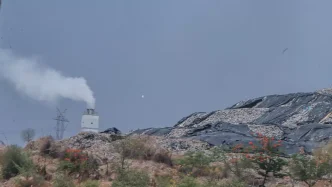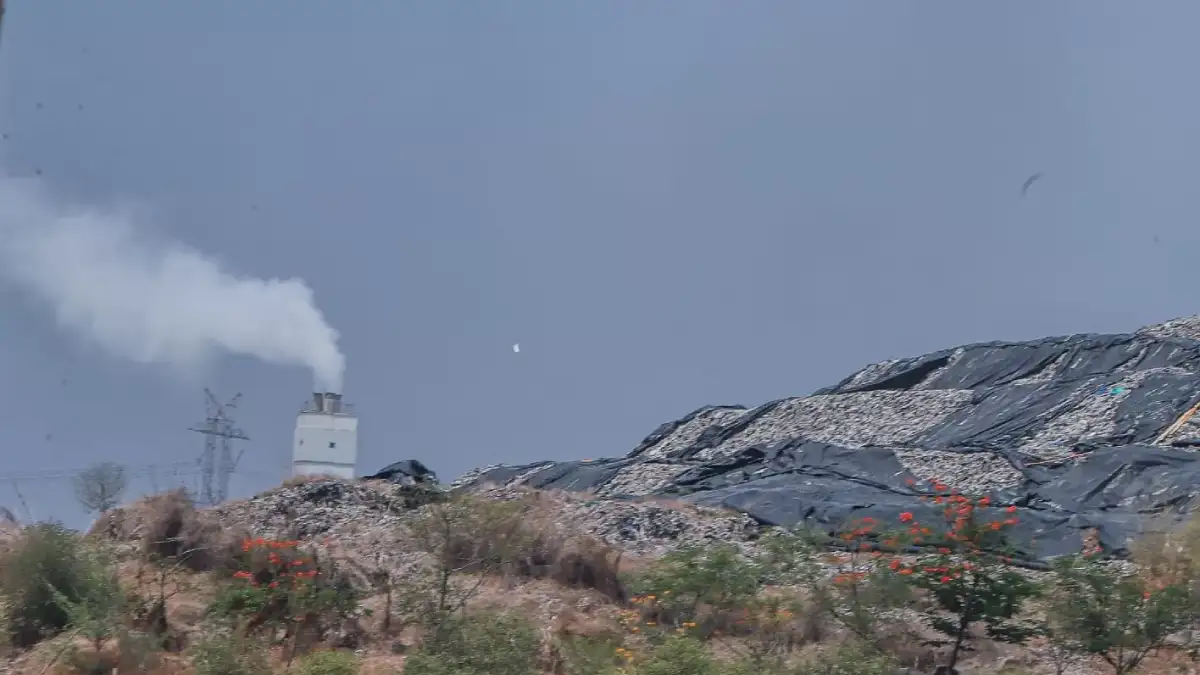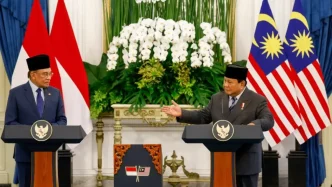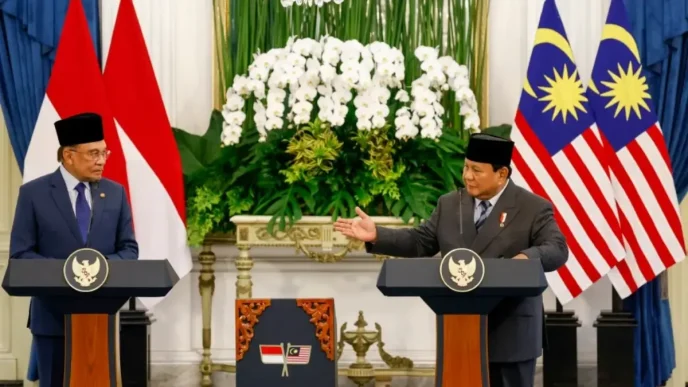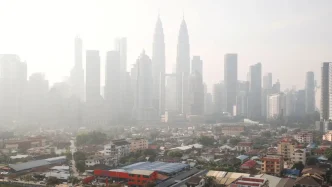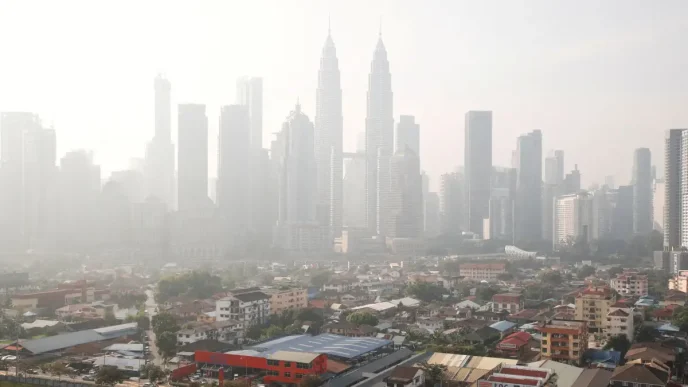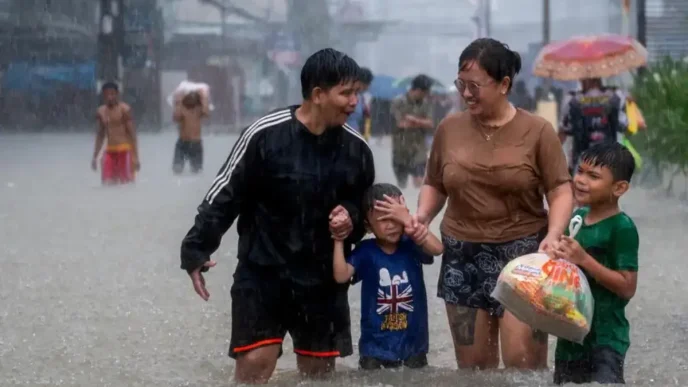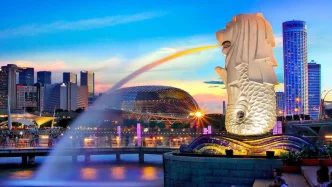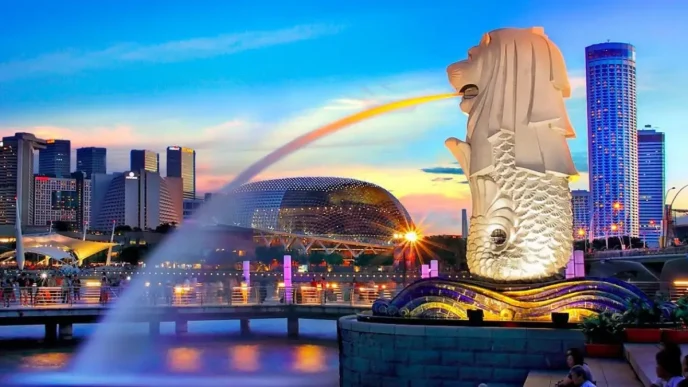Surabaya, Indonesia’s second-largest city, is grappling with a mounting environmental crisis as concerns over air pollution intensify. At the heart of the controversy is the Benowo Waste-to-Energy Power Plant, located in the city’s Pakal District. Environmental activists, led by the Indonesian Forum for the Environment (WALHI), have accused the facility of contributing to dangerously high levels of air pollution, prompting calls for its permanent closure. As the debate unfolds, questions about public health, transparency, and sustainable waste management are coming to the forefront in East Java’s bustling capital.
A Growing Health Hazard
The Benowo power plant, operational since 2015, was initially heralded as an innovative solution to Surabaya’s escalating waste management challenges. Situated at the Benowo landfill, which processes 1,600 to 1,700 tons of waste daily—roughly 60 to 70 percent of the city’s total refuse—the facility generates electricity through methane extraction and, more recently, waste incineration. Yet, environmentalists argue that this supposed solution is exacerbating a public health crisis.
According to WALHI’s East Java branch, air quality monitoring conducted between November 2024 and January 2025 within a three-kilometer radius of the plant revealed alarming levels of fine particulate matter, known as PM2.5. These particles, measuring 2.5 micrometers or smaller, can penetrate deep into the lungs and bloodstream, posing severe health risks. The average PM2.5 concentration was recorded at 26.78 micrograms per cubic meter (µg/m³), nearly double the World Health Organization’s recommended limit of 15 µg/m³. At peak times, levels reportedly surpassed 100 µg/m³, far exceeding Indonesia’s national air quality standard of 55 µg/m³.
Lucky Wahyu Wardhana, Campaign Manager for WALHI East Java, has been vocal about the implications. He warned that prolonged exposure to such elevated PM2.5 levels could heighten the risk of serious conditions like cancer, heart disease, and even premature death. Data from the Surabaya Health Agency appears to support these concerns, with over 174,000 cases of acute respiratory infections recorded in the city between January and July 2023, including more than 6,000 among infants.
“The Benowo waste-to-energy power plant is not a solution; it is a source of pollution” Wardhana told a local outlet. “The government should protect its citizens, not legitimize harmful and dirty technologies.”
Transparency and Accountability in Question
Beyond health concerns, WALHI has criticized the Surabaya administration for a lack of transparency regarding the plant’s operations. The facility, managed by private company PT Sumber Organik under a 20-year Build-Operate-Transfer agreement, has never had its Environmental Impact Assessment (AMDAL) results made public. City officials have cited patent protection as the reason for withholding these documents, a justification that Wardhana argues violates Indonesia’s legal framework.
“Denying access to AMDAL documents infringes on constitutional rights,” he stated. “It violates the 2008 Public Information Transparency Law and the 2009 Environmental Protection and Management Law.”
This opacity has fueled distrust among environmental advocates and residents alike. Without access to critical data, it remains unclear whether the plant adheres to national environmental standards or if mitigation measures are in place to address its emissions. WALHI has called for the permanent closure of the facility, advocating instead for a community-based zero-waste system that prioritizes recycling and waste reduction over incineration.
A Controversial Model of Sustainability
Despite the criticism, the Benowo plant has received praise from some quarters for its contribution to renewable energy. Since its inception, the facility has produced 166.1 gigawatt-hours of electricity for Surabaya residents, according to state-owned electricity company PLN. Initially generating 1.65 megawatts through methane gas extraction from waste mounds, the plant’s capacity expanded to 9 megawatts in 2021 with the addition of a gasification system that incinerates around 1,000 tons of waste daily at high temperatures.
“Benowo stands as a prime example of successful collaboration between PLN and the Surabaya city administration in promoting environmentally friendly technology” said Ahmad Mustaqir, General Manager of PLN’s East Java Distribution Unit, in a statement earlier this year. High-ranking officials, including Coordinating Minister for Infrastructure and Regional Development Agus Harimurti Yudhoyono, have also endorsed the project, emphasizing the need to replicate such initiatives in other Indonesian cities grappling with waste management challenges.
Yet, the definition of “environmentally friendly” remains contentious. While waste-to-energy plants are often promoted as a dual solution for waste reduction and energy production, critics argue that incineration releases harmful pollutants, including dioxins and heavy metals, into the atmosphere. In Surabaya, where the majority of waste is processed through incinerators at Benowo, the environmental and health costs may outweigh the benefits, according to WALHI.
Government Response and Future Steps
In response to mounting pressure, Surabaya Mayor Eri Cahyadi has committed to investigating the air quality issues linked to the Benowo plant. He has promised to assess whether the facility meets required environmental standards and to hold PT Sumber Organik accountable for any violations. The mayor has also indicated that sanctions could be imposed if the company fails to address and improve air quality conditions.
This pledge offers a glimmer of hope for activists and concerned residents, but skepticism remains. Waste management is a pressing issue across Indonesia, where only about 10 percent of waste is reportedly processed effectively, leaving cities like Surabaya to contend with overflowing landfills and limited infrastructure. The Benowo plant was intended to alleviate these pressures, but its operation has instead sparked a broader debate about the trade-offs between energy innovation and public health.
Searching for Sustainable Alternatives
The controversy surrounding Benowo reflects a larger challenge facing Indonesia and much of Southeast Asia: how to manage urban waste sustainably without compromising environmental and public health. Community-based zero-waste initiatives, as proposed by WALHI, focus on reducing waste at the source through education, composting, and recycling programs. Such approaches have shown promise in smaller-scale projects across the region, but scaling them to a city of Surabaya’s size—home to over 3 million people—presents significant logistical and financial hurdles.
Moreover, transitioning away from waste-to-energy systems requires political will and long-term investment, both of which have been inconsistent in Indonesia’s waste management policies. While national leaders advocate for modern technologies like incineration, local communities often bear the brunt of their unintended consequences. In Surabaya, the Benowo plant’s proximity to residential areas amplifies these concerns, as pollution directly impacts the daily lives of thousands.
A Broader Regional Context
Surabaya’s struggle is not unique. Across Southeast Asia, rapid urbanization and population growth have strained waste management systems, leading to a reliance on technologies that promise quick fixes. In neighboring countries like Thailand and the Philippines, similar waste-to-energy projects have faced opposition over environmental and health concerns. For instance, in Manila, community groups have protested against incineration plants, citing inadequate emission controls and a lack of public consultation.
In Indonesia, the stakes are particularly high. The country is one of the world’s largest contributors to plastic waste, much of which ends up in landfills or oceans. While waste-to-energy plants like Benowo aim to address this crisis, they risk perpetuating a cycle of pollution if not paired with robust regulatory oversight and transparent governance.
Looking Ahead
As Surabaya navigates the fallout from the Benowo plant controversy, the path forward remains uncertain. Mayor Cahyadi’s investigation could set a precedent for how environmental accountability is enforced in Indonesia, potentially influencing policies in other cities. However, without systemic changes to waste management practices and greater public access to information, tensions between development goals and environmental protection are likely to persist.
For now, residents of Surabaya wait anxiously for answers, hoping that their health and well-being will take precedence over technological promises. As the debate over the Benowo Waste-to-Energy Power Plant continues, it serves as a stark reminder of the delicate balance between innovation and sustainability in one of Indonesia’s most dynamic urban centers.

